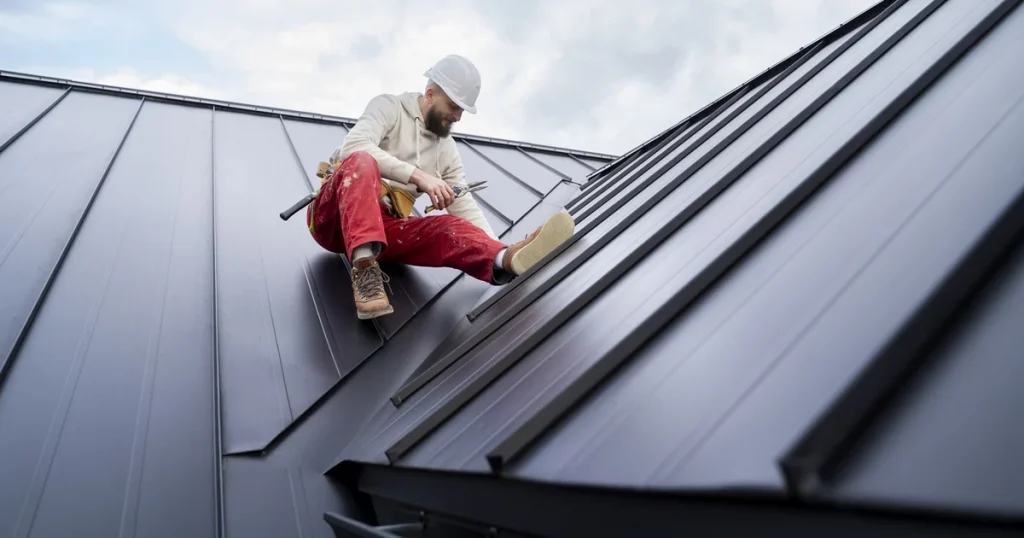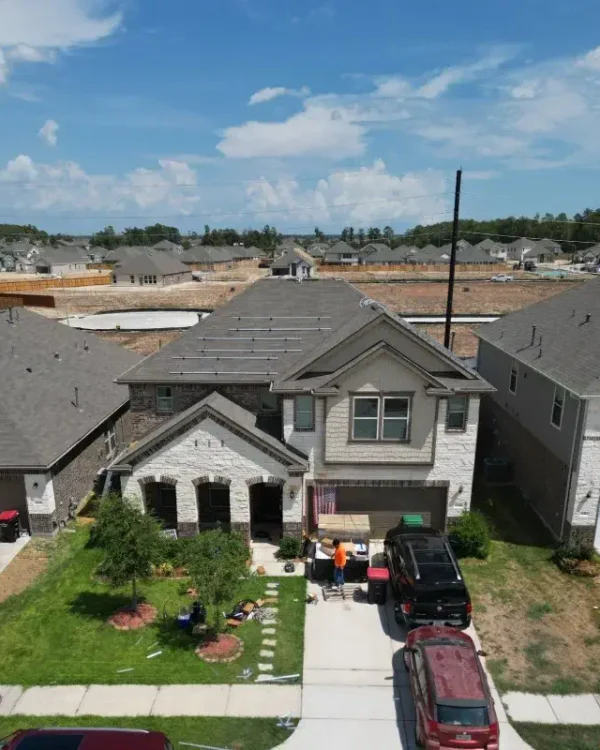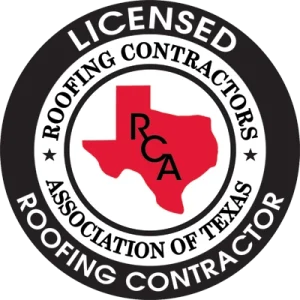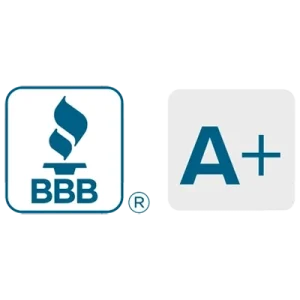Emergency Roof Repair Services in Sugar Land, TX

When your roof faces unexpected damage from a storm, high winds, or a fallen tree, Sienna Roofing is your trusted local partner for fast and professional emergency roof repair in Sugar Land, TX. Roof emergencies can cause major disruptions to your home or business—our trained team is available to respond quickly, assess the damage, and secure your property from further harm.

Why Choose Sienna Roofing
Locally Owned and Operated
We have a deep understanding of Texas' unique building regulations, weather patterns, and community needs.
Licensed & Insured
All our professionals are fully certified, and our work is backed by comprehensive insurance policies.
All-in-One Service
Whether it’s a small repair or a complete roof overhaul, we manage the entire project from start to finish with no outsourcing.
Fast Response for Emergency Roof Issues
Roofing emergencies don’t wait, and neither do we. Sienna Roofing understands how important a rapid response is when dealing with urgent roof damage. Whether it’s from sudden hailstorms, intense rainfall, or wind-borne debris, we respond quickly to minimize water intrusion, structural damage, and safety risks.
According to Ready.gov, severe storms cost U.S. homeowners billions in property damage annually—with roof damage being one of the top claims. In Sugar Land, TX, wind speeds can reach up to 95 mph during severe weather events, making the area particularly vulnerable to roof damage. For Texas-specific storm preparedness and recovery resources, visit Texas Department of Insurance.
What Qualifies as a Roofing Emergency?
Not all roofing issues require emergency service, but here are some signs that you need immediate assistance:
- Storm or hail damage: High-impact storms can puncture shingles or knock off entire roofing sections, leading to immediate leaks and structural risk.
- Roof leaks: If you notice water dripping inside your property during or after a rainstorm, immediate repairs are essential to prevent mold or ceiling damage.
- Fallen tree limbs: Debris from trees or nearby structures can crack tiles or rip apart flashing, leaving your roof vulnerable.
- Exposed roofing materials: Missing shingles, loose flashing, or torn underlayment can allow rainwater to seep into your attic or living space.
- Structural sagging or collapse: Bowing, creaking, or visual sagging are red flags indicating significant internal damage.
- Wind damage: Shingles lifted or blown off entirely during a storm leave your home exposed to the elements.
Sienna Roofing is trained to handle all these scenarios with care and urgency.























Our Emergency Roof Repair Process
We’ve streamlined our process to ensure your roof is stabilized and repaired without delay:
- Immediate Response: Our dispatch team gets you on the schedule right away, with priority given to active leaks and structural risks.
- Initial Inspection: A thorough check of the damaged areas is conducted. We photograph issues and document everything for your insurance claim.
- Secure Temporary Protection: We use high-grade tarps and sealants to prevent further water intrusion.
- Full Damage Assessment: Once the roof is temporarily stabilized, we assess all components, from underlayment to structural decking.
- Transparent Estimate: You receive a line-item estimate with full transparency—no hidden costs or upsells.
- Permanent Repair or Replacement: Depending on the extent of the damage, we complete necessary repairs or recommend full replacement if required.
- Final Walkthrough & Support: We guide you through the repairs and offer assistance with your insurance provider’s documentation process.
Why Homeowners in Sugar Land Trust Sienna Roofing
- Local Experience: Decades of experience handling Sugar Land’s humid, hurricane-prone climate.
- Licensed & Insured: We meet or exceed all state and local licensing requirements.
- Rapid Response: Dedicated emergency teams on standby during storm seasons.
- Workmanship Warranty: Every repair is backed by a written warranty for peace of mind.
- Trusted by Locals: Hundreds of 5-star reviews and repeat clients prove our reliability and quality.
Residential & Commercial Emergency Roof Services
We serve homeowners, apartment complexes, retail centers, warehouses, and other commercial properties. For a closer look at our work, visit our project gallery, read testimonials, or learn more about us. Our technicians are certified to work on all roof types and adapt solutions based on property usage, traffic, and budget.
Types of Roofs We Repair:
- Roof Leak Repair: Specialized detection and sealing of active roof leaks to prevent mold and water damage.
- Handyman Roof Repair: Quick fixes for minor damages like loose shingles, caulking, or vent resealing.
We ensure that every type of repair is treated with the same level of urgency and precision, no matter how large or small. You can explore our full range of roofing services or request a roof inspection to evaluate your current system.
If your roof is damaged during a storm, stay safe indoors, avoid the damaged area, and contact Sienna Roofing right away. We’ll tarp the affected area if needed and assess the damage quickly.
We aim to dispatch a crew the same day or within hours depending on the severity of the damage. Our local team is based in Sugar Land and can respond rapidly.
Most policies cover sudden and accidental damage like hail, wind, or fallen trees. We help homeowners document the issue and assist with the insurance claim process.
If water is entering your home, pooling, or damaging electrical systems, it’s an emergency. We recommend calling us immediately for assessment and tarping.
In addition to Sugar Land, we serve nearby communities like Missouri City, Katy, Richmond, and Pearland.
Absolutely. Many roofing issues are hidden from the ground. A professional inspection ensures that small problems don’t become expensive repairs later.
Contact Us Today
Sienna Roofing
17034 University Blvd, Sugar Land, TX 77479
Phone: (832) 564-3322
Business Hours
Monday: Open 24 hours
Tuesday: Open 24 hours
Wednesday: Open 24 hours
Thursday: Open 24 hours
Friday: Open 24 hours
Saturday: Open 24 hours
Sunday: Open 24 hours